Can’t shake your daily chocolate fix? Find
out what your body really needs and beat those snack attacks for good.
Craving chocolate?
We hate to burst your bubble; there is no
such thing as chocolate deficiency! Craving chocolate could be a sign of low
magnesium levels, because raw cacao is a good source of this vital mineral.
“Magnesium is important for a healthy menstrual cycle, and your body uses it to
relax your muscles after exercise” says Philip Weeks, natural medicine expert
and author of Make Yourself Better (Singing Dragon Books $15). In the UK, 70
per cent of women are magnesium deficient. It’s also essential for healthy
bones as it helps the absorption of calcium. Your body needs a calcium/
magnesium ratio of 2:1, but dairy foods contain a ratio of 12:1, leaving you
susceptible to magnesium deficiency.
Craving chocolate
If you’re getting enough calcium, but at
risk of osteoporosis, try supplementing your diet with magnesium, says Weeks.
Diet
solution
Magnesium-rich foods such as almonds,
spinach, Swiss chard, pumpkin, sesame and sunflower seeds.
Nutrition
offer
Get an exclusive 25% discount on The Food
Fairies’ Package 1: The Original Food Fairy Programme, worth $105 Visit
foodfairynutrition.com, fill in the functional health check questionnaire and
enter the code 89ert$$9KDs in the allocated discount box.
Craving bread?
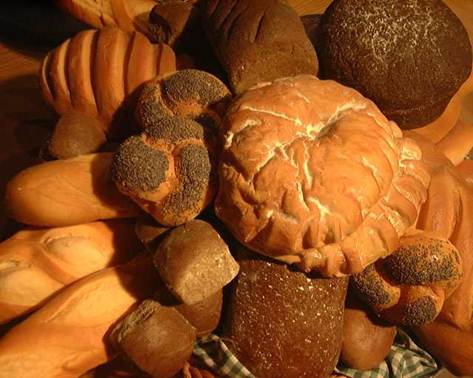
Craving bread
Wheat-based foods are usually a good source
of quick-release carbohydrates. “Many people crave bread because it raises
blood sugar levels quickly”, says Weeks. This means it offers a short-term
energy fix. “Ironically, people with Irritable Bowel Syndrome (IBS) sometimes
crave wheat-based foods, including bread, even though they’re sensitive to
them,” says Weeks. The protein gliadin, found in wheat, stimulates your
appetite, leaving you hungry for more carb-heavy foods. The trick is to abstain
and opt for blood sugar balancing foods, such as protein and essential fats.
“Year ago, soil was more nutrient-rich, so
wheat contained a lot of selenium, an antioxidant mineral,” says Weeks. “A
craving for bread could mean your body needs more selenium”
Diet
solution
To stabilize your blood sugar and prevent
sugar lulls, eat high-protein foods such as chicken, fish, nuts and beans.
Brazil nuts are a good source of selenium.
Craving salt?
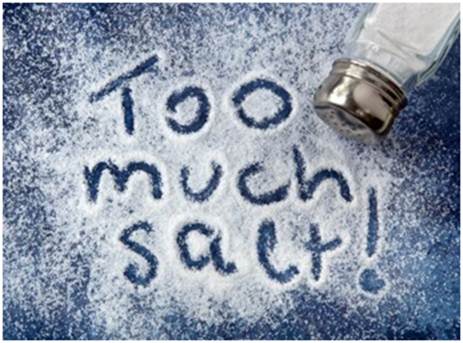
Craving salt
Salt is vital for every cell in your body.
It’s an electrolyte that helps transport nutrients in and out of your cells.
Together, water and salt regulate the metabolic functions of your body, but
they must be in balance. During exercise your body loses salt through sweat, so
you might crave it after a workout, says Weeks. Instead of sports drinks, try
drinking coconut water, which is full of minerals and electrolytes. “Sudden
urges for salt could mean you’re dehydrated.” Says Weeks. Salt deficiency is
uncommon as it’s so plentiful in our diets, but dehydration affects almost 90
per cent of the population.
“Salt contains important minerals, such as
iodine, which most diets are deficient in,” says Weeks. “Iodine is important
for healthy thyroid function, which produces hormones that maintain the brain
and nervous system.
Diet
solution
Proper hydration is the solution to most
salt cravings. Use mineral-dense rock or sea salt instead of table salt.
Iodine-rich foods include cheese, yoghurt and eggs.
Craving alcohol?
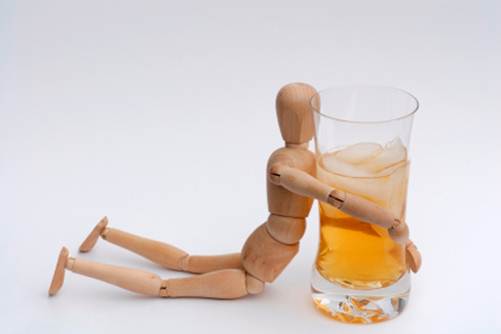
Craving alcohol
“Just like recreational drugs, alcohol is
an addictive substance”, says nutritionist Rachel Henderson of The Food Fairies
(foodfairynutrition.com). Alcohol also leaches nutrients from your body, such
as vitamin C and thiamin (vitamin B1), which is essential for energy. “The
amino acid glutamine is needed by the brain to reduce cravings, especially for
alcohol,” says Henderson. Your body draws on muscle glutamine stores in times
of stress to bolster the immune system, so make sure you eat enough meat and
legumes, which are high in this essential amino acid.
If the cravings is severe you could try
supplementing your diet with L-Glutamine ($... for 50 tabs;
hollandandbarrett.com).
Diet
solution
Poultry, red meat, fish, nuts and legumes.
Also take a multi-vitamin to replace lost vitamins.
Craving coffee?
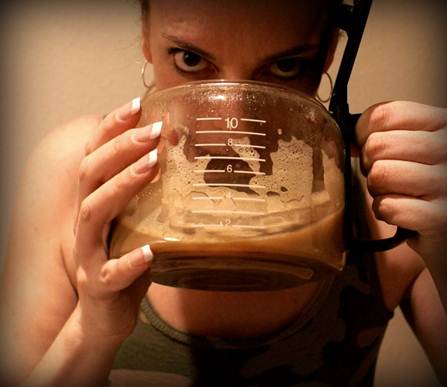
Craving coffee
Do you get irritable, forgetful or tired
without your morning cup of caffeine? An underlying iron or vitamin B12 deficiency
could be the reason for these symptoms. “It’s a paradox,” says Henderson. “Tea
and coffee actually inhibit iron absorption” Eat iron-rich foods with vitamin
C, such as lemon juice, to ensure you’re absorbing the iron, says Henderson.
Caffeine is the addictive stimulant in
coffee, because it raises blood sugar levels to give you an instant energy
boots. It stimulates the adrenal glands to excrete the hormone adrenaline.
“Exercising in the morning improves energy levels and eating a complex
carbohydrate snack will give you a steady release of energy,” says Weeks.
Diet
solution
Foods rich in vitamin B12 are seafood, red
meat, fortified breakfast cereals and oily fish. Beetroot and spinach with a
squeeze of lemon juice are good sources of iron.
Craving crisps?
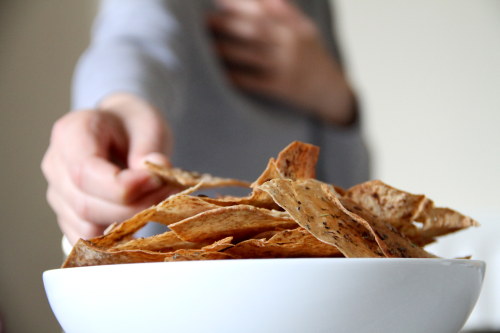
Craving crisps
Women crave high-fat and sweet foods more
than men, especially when following a low-fat diet, says Henderson. “Your body
tells you that you need fat, but it’s important to eat the right ones.” says
Henderson. Healthy fats and oils, such as omega-3 and omega-6 fatty acids, are
essential for protecting your cells and giving you energy.
There’s also a link between calcium
deficiency and cravings for fatty food. A diet high in saturated and trans-fats
is known to raise cholesterol levels, but some saturated fat is needed in your
diet as it helps the absorption of vitamin D and the transportation of calcium
to your bones.
Diet
solution
Oily fish such as mackerel, sardines and
anchovies, avocados, nuts and seeds, will give you essential fats. For calcium,
eat dark leafy greens, such as broccoli and kale, legumes, cheese (avoid
low-fat options) and sesame seeds.
Craving ice?
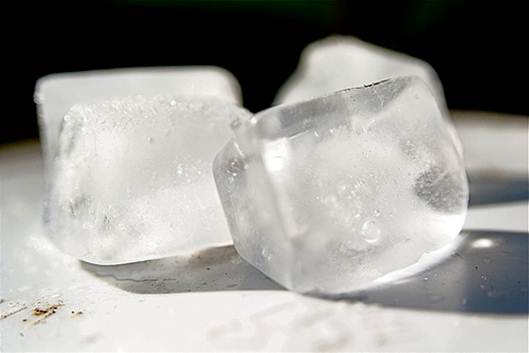
Craving ice
If you have sensitive teeth you’re unlikely
to want it, but a craving for ice is not that uncommon, particularly for
pregnant women. “This craving can be a sign of iron deficiency, also known as
anaemia,” say Weeks. if you also recognize symptoms of fatigue, shortness of
breath, rapid heartbeat, irritability, dizziness, lightheadedness, poor
concentration, restless legs, increased infections or chapped lips, it’s worth
talking to your GP. You may need a blood test to check your haemoglobin levels.
If you’re not getting enough iron, your body can’t make enough haemoglobin,
which carries oxygen to your tissues, and organs, resulting in symptoms of
anaemia.
Enhance your diet with iron-rich foods and
only take an iron supplement under a doctor’s supervision.
Diet
solution
Healthy sources of iron and lean red meat,
green leafy vegetables, beans and legumes, nuts, nettles and dried fruits.